The first picture I took the day I moved to Spokane was of two towering smokestacks in the skyline. The air was hot and dry that day — so different from Crab Orchard, Kentucky, the humid hometown I’d left. I wanted a picture to send home that would capture how amazing the city was, how overwhelmingly different. I didn’t know then that those smokestacks belonged to one of Spokane’s favorite microbreweries, the Steam Plant.
Since then, I have been inside the Steam Plant exactly twice: once for a class and once for this story. Perhaps I was afraid of losing that first impression — the one that, in my mind, represented all of Spokane.
However, when I talked with Tim Denniston, the general manager, I realized my impression was valid. It is his goal to keep the Steam Plant an icon to the people of Spokane.
Now a microbrewery and restaurant, the Steam Plant was not always so iconic. At first a functioning supplier of steam heat, the building was practical more than attractive. After sitting idle for years, it was reinvented, with much of the original architecture intact.
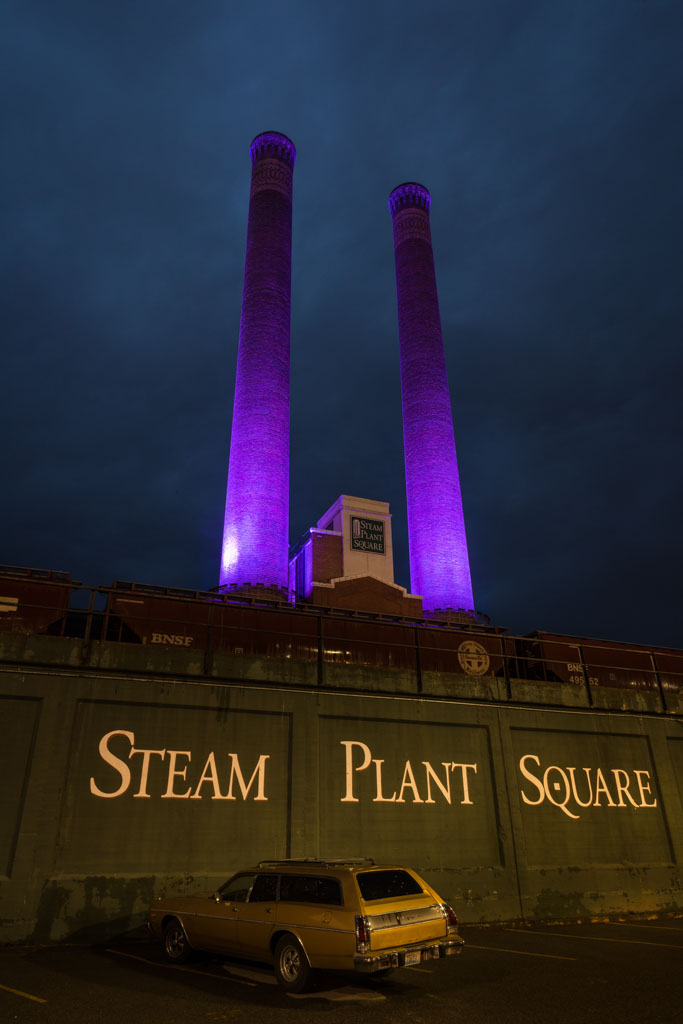
As Tim led me through the building, its history showed through. We walked through glass doors and past a walkway overlooking the taproom. We passed machinery with valves and gauges, and pipes running along sections of the ceiling. Tim and I sat and talked in what was once a boiler. Now it is a long, rectangular dining room.
Tim settled in and seemed at home in the boiler. He talked about the building’s history, “Anything with rivets is old. Anything with nuts and bolts is new.” He talked about their most popular brew — the vanilla bourbon stout. He talked about brewing and cooking techniques, ingredients and pairings, and his vision for the future; “To be a part of the Spokane skyline for the next 100 years.”
Like many others in that time, my eyes will continue to be drawn to the Steam Plant when I look out at the city, those iconic smokestacks, alight with the colors of local charities or local sports teams. And patrons will continue to enjoy fine food and fine craft beer in perhaps the most unique taproom in Spokane.
Iron Goat Brewing Company
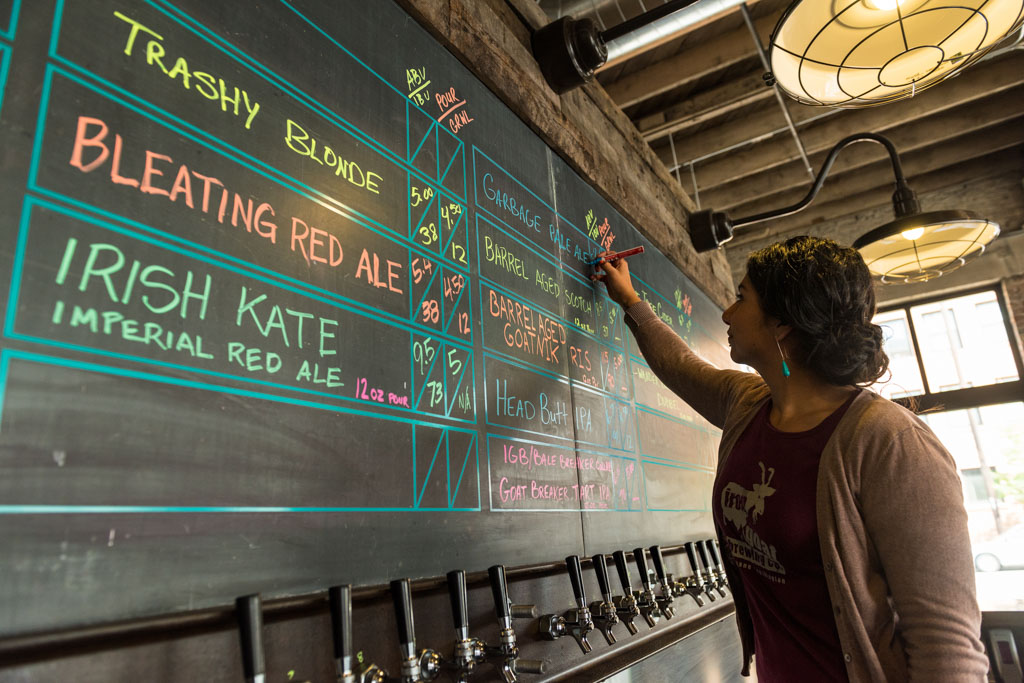
When I sit down with Heather Brandt, she already knows more about me than I am ready for. I confess to her that I am not much of a beer drinker. At that she lights up, leaning forward, eyes open wide. “I can almost always find a beer that a non-beer drinker likes!” she says with no small amount of pride.
She has two recommendations immediately: a sour beer, namely their blackberry apricot sour, and an espresso or chocolate stout. I don’t say anything for several seconds. The two beers I have enjoyed in the past were a grapefruit sour and a chocolate stout. But, of course, she can already tell.
Even before it was conceived, the brewery had an air of destiny surrounding it. Heather’s husband Greg, struck up a conversation with a stranger — Paul Edminster — at a meeting for Inland Brewers Unite, the first meeting either had gone to. They wanted to see what it was all about.
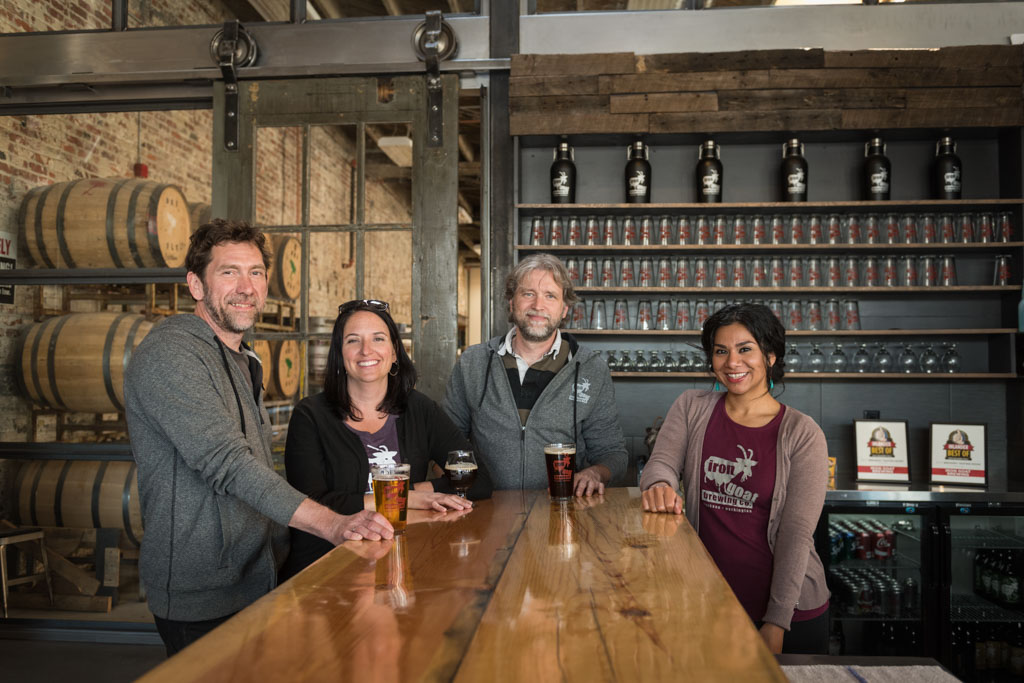
They connected over home brewing, Triumph motorcycles and the desire to start a business. Greg had the resources for a brewery but no building. Paul had a building. The business partners seemed fated to start this brewery, and their wives didn’t hesitate.
Since then, the four of them have combined their skills to put the brewery in action. With backgrounds in business, IT, and graphic designer, the team gained momentum. They expanded so quickly, that they started looking for a larger location only two years after opening for business.
“We were elbow to elbow,” Heather explains. “Now we’ve got room to grow for the next 10 years. We should never outgrow this space.”
Heather shows off the new location, which, when completed will have three times the amount of space. She points to the bar where Greg and Paul have aged the metal. She points to slate they’ve gathered from a schoolhouse in Seattle and proudly admits to helping paint, sand, and refinish different aspects of the taproom during the construction.
Story continues after a quick message from our sponsor below.
With so many things going right for the Iron Goat, it would be easy to say that luck or fate played a hand. But as she continues to talk about the business of beer, I start to realize something about her, too. Heather and her business partners would not be successful without a passion for what they’re doing. The Iron Goat is successful because they are willing to do the tough work — to get their hands dirty. It’s this passion that enables them to sit across from their customers and guess which beer they’d like, even when they hear you don’t like beer.
Black Label Brewing Company
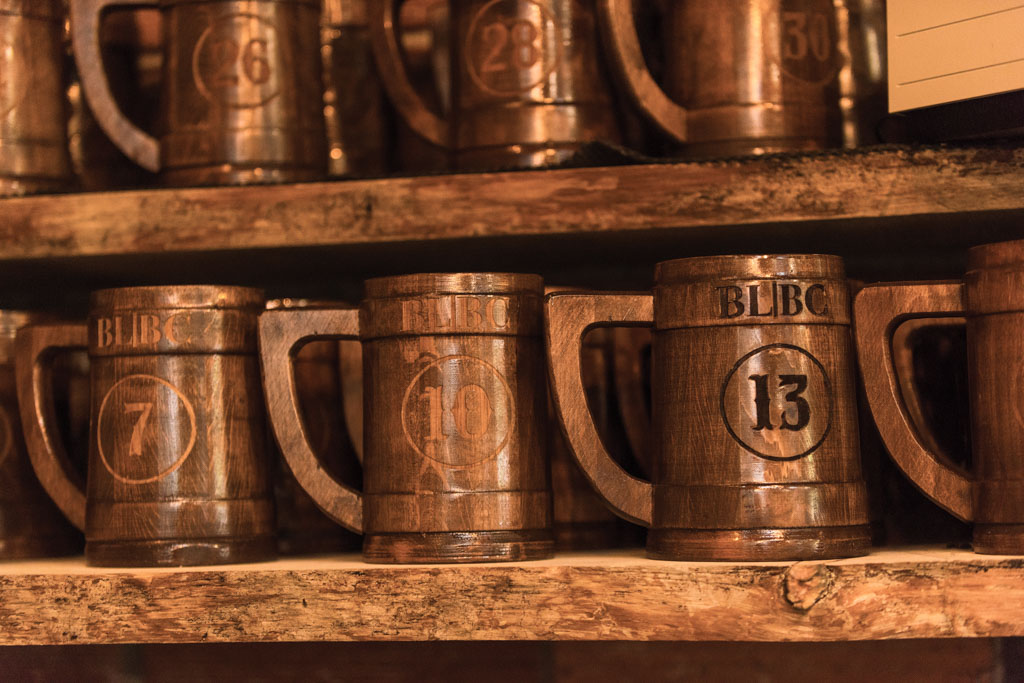
To see Black Label Brewing Company now, with its sleek fixtures and stained glass pieces tucked under the natural light of Saranac Commons, you wouldn’t believe its first location was a home kitchen.
But for Dan Dvorak and Steve Wells, a brewery was not always in the plan. It wasn’t until Steve brewed that first batch, that the pair got hooked on the process. They could throw ingredients into a pot, boil them, ferment them and create beer. They found what they were happy doing but still didn’t imagine moving their brewery beyond the home.
Now, over a year after the company’s opening, Steve and Dan reminisce over its roots. “It was always a pipe dream, but it was never a reality,” Dan says with a hint of disbelief as he sits across from me in the taproom. He remembers the trip from kitchen to garage to weddings to parties. He remembers the Kickstarter and the contracts and the blueprints it took to get them where they are now. And he’s proud of it.
Maybe more than anything, he’s proud of sticking to his principles. From the very first days they started to imagine their business, Dan and Steve knew they wanted to focus on one thing: the beer. Too often, they had seen breweries use gimmicks to try to sell their beer, whether it was the cold-activated can or the vortex bottle. Containers were becoming more interesting than the beer itself.
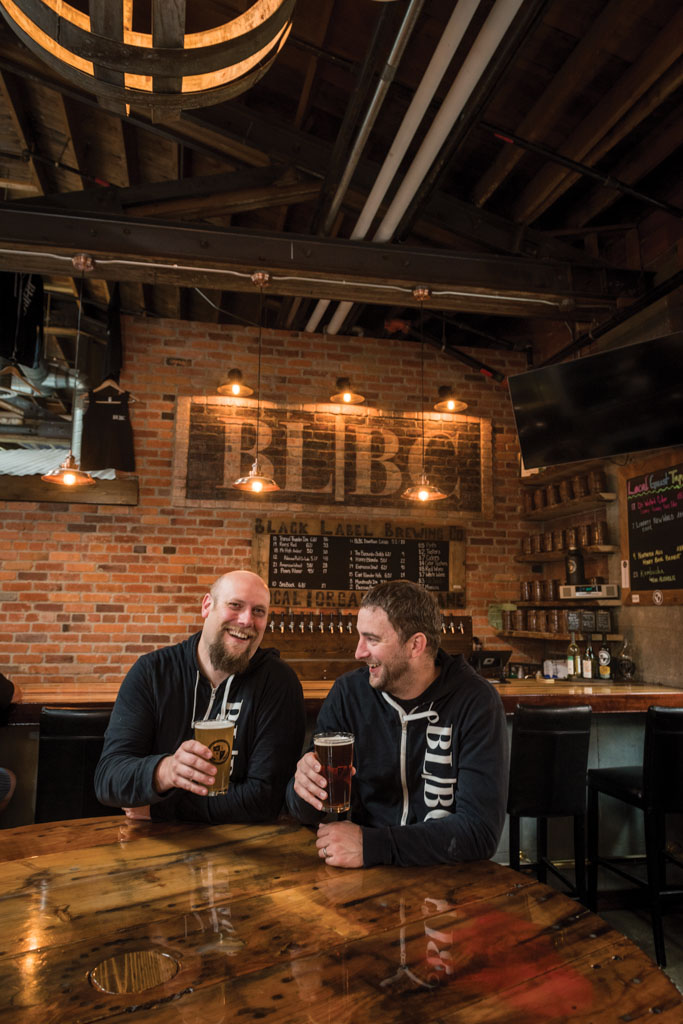
“We wanted to be the opposite of that,” Dan says. “We wanted to be the anti-label. The no label. The black label.” Their beer, he argues, should sell itself.
So far, this approach has been working. On the night the company celebrated its one-year anniversary, it also celebrated its busiest night. Last December, the company started a Mug Club, selling refillable Black Label Brewing Company numbered mugs for $100 apiece. They sold out within a month.
Dan struggles to show just how much he appreciates this support. “It made me feel,” he hesitates, “loved, a little bit, that all these people love our place and beer so much.” He nods to the regulars and newcomers at the bar. “We’ve got such a big family now.”
Again, Dan seems struck by seeing his dream in his reality. “Who knows if this is going to last.” he says, laughing. “But if it doesn’t, then we at least did it our way, and we did it the way we wanted to do it.” N
By Erin Leigh
Photography By Joel Riner
As Featured In: Premier 2017 SPO Edition


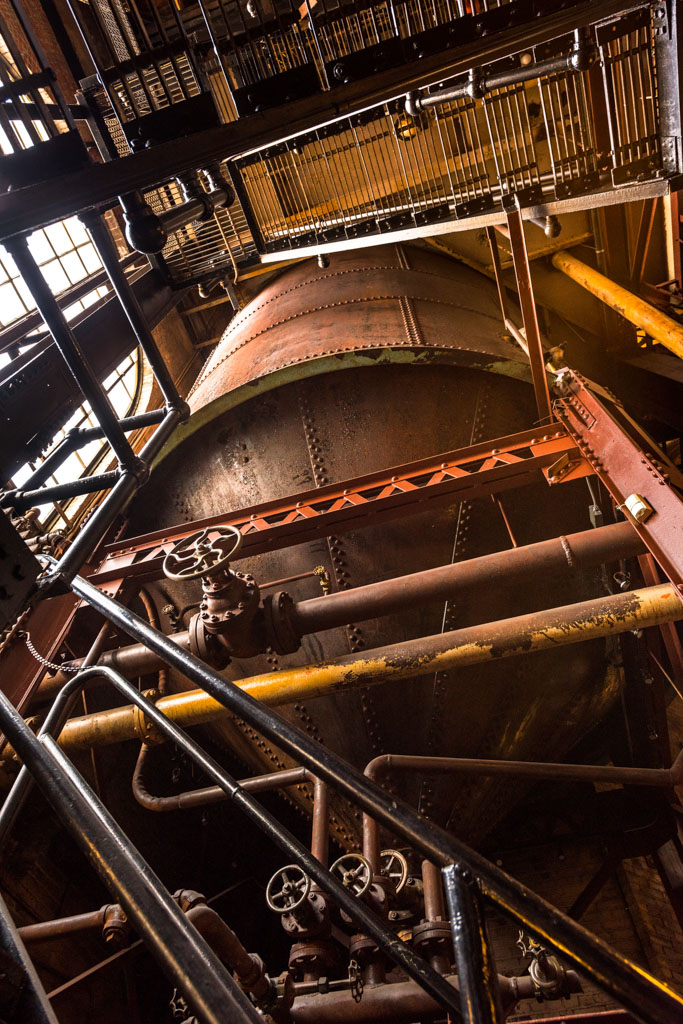

1 Comment
hi guys :). I am looking for help for me and my girl. i am from France